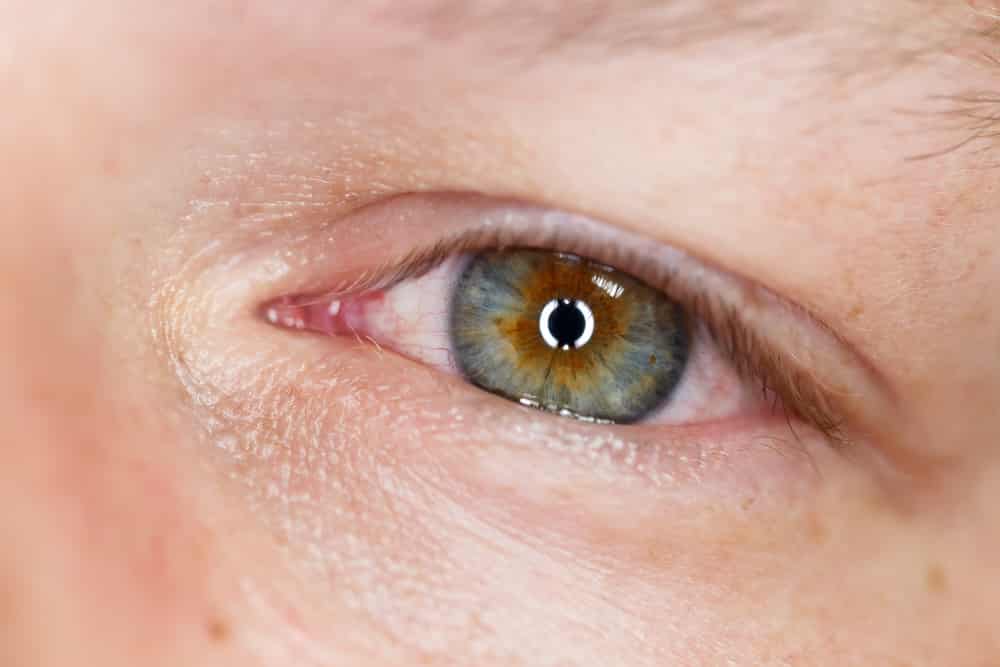Teardrops aren’t always a sign of sadness or pain. Joy and other strong emotions can also send these small drops of water, salt, and oils trickling down a person’s cheeks. However, when someone complains of watery eyes, it’s a little different. While it may be the same fluid involved, neither positive nor negative emotions are generally to blame. What causes watery eyes?
What Causes Watery Eyes?
According to the American Academy of Ophthalmology, human eyes produce between 15 and 30 gallons of tears each year. Why so much? Interestingly, tears serve several purposes. In addition to the emotional tears that form when a person’s emotions are stirred, tears are continually produced by the body to nourish, lubricate, and protect the cornea, the transparent front of the eye. Plus, tears are formed on an as-needed basis to cope with potential irritants.
Unfortunately, there are times when tear production goes into overdrive. What causes watery eyes?
Foreign Bodies
Whether it’s a speck of dust, an eyelash, or a tiny bit of chemical exposure due to something like smoke or a freshly sliced onion, a foreign body in your eye can be incredibly irritating. Unfortunately, the tears that your body forms to rinse away the invader can be equally annoying.
Allergies
Watery, itchy eyes are a classic symptom of allergies. A variety of over-the-counter and prescription medications are available. Identifying and avoiding your triggers can also be helpful.
Injuries
A scratch or scrape on the surface of the eye can send your tear glands into overdrive as they attempt to soothe your sore, sensitive cornea. Fortunately, most minor scratches will heal in a day or two, but if you suspect that you may have a scratched cornea, it’s best to seek prompt professional treatment to help ward off complications like infection. Blows to the eye that cause swelling can also interfere with the normal function of the tear glands and tear ducts.
Medications
Some prescription medications can trigger watery eyes. Certain medical treatments, including chemotherapy and radiation, can also have an impact on tear production.
Infections
Conjunctivitis is often referred to as pink eye, which is rather fitting since it gives the infected eye a pink or red appearance. Along with other infections, it’s known to cause red, watery, gritty-feeling eyes.
Eyelid Issues
Normally, the eyelid sweeps smoothly across the surface of the eye, wiping away excess moisture as it passes. However, things don’t always go so smoothly. The eyelids or lashes can angle inward and rub against the eye, creating a problem called entropion. Alternately, they can dangle away, failing to wipe all or part of the eye during a blink. This issue is called ectropion. Either of these eyelid issues can cause watery eyes. Another concern is blepharitis, a recurrent condition triggered by allergies, infections, rosacea, and other issues. Blepharitis causes your eyelids to swell near your lash line and your eyes to water.
Eyelash Drama
Many women long for lush, dramatic lashes, but when eyelashes go bad, they can cause real problems for your eyes. When an eyelash insists on growing at an inward angle that causes it to rub against the eye, it’s called trichiasis. It can be the result of an infection, injury, or bad luck, and it often causes excessive tearing and discomfort unless a doctor redirects or removes the problem lash.
Blocked Tear Ducts
Tears flow into the eyes through glands found above the eye. After lubricating and rinsing the eye, they’re supposed to drain out via the tear ducts located in the corners of the eyes. When these tear ducts become blocked as a result of infection, injury, or age, watery eyes are often the result.
Medical Issues
The health of your eyes is only one facet of your total health, but there’s no separating your overall wellness from the well-being of your eyes. Medical issues that may seem to primarily impact other parts of body can also affect your eyes. If you’re battling watery eyes, then it’s worth looking at your medical chart. Health conditions like chronic sinus infections, Bell’s palsy, thyroid trouble, Sjogren’s syndrome, and rheumatoid arthritis are all linked with watery eyes.
_____
If you’re wondering what causes watery eyes, ask the professionals at Heffington’s. Since 1975, the Heffington family has been assisting the Springfield community with top-quality eye care and affordable eyeglasses and contacts. One of the unique features of our family-owned business is that we manufacture lenses at our own laboratory, giving us total control over the service and pricing, and we’re happy to pass our savings on to you. To learn more about our products and services, please get in touch with us online, send an email to asktheexperts@heffingtons.com, or give us a call at 417-869-3937 (Optiland location) or 417-882-3937 (House of Vision location). We look forward to hearing from you!

